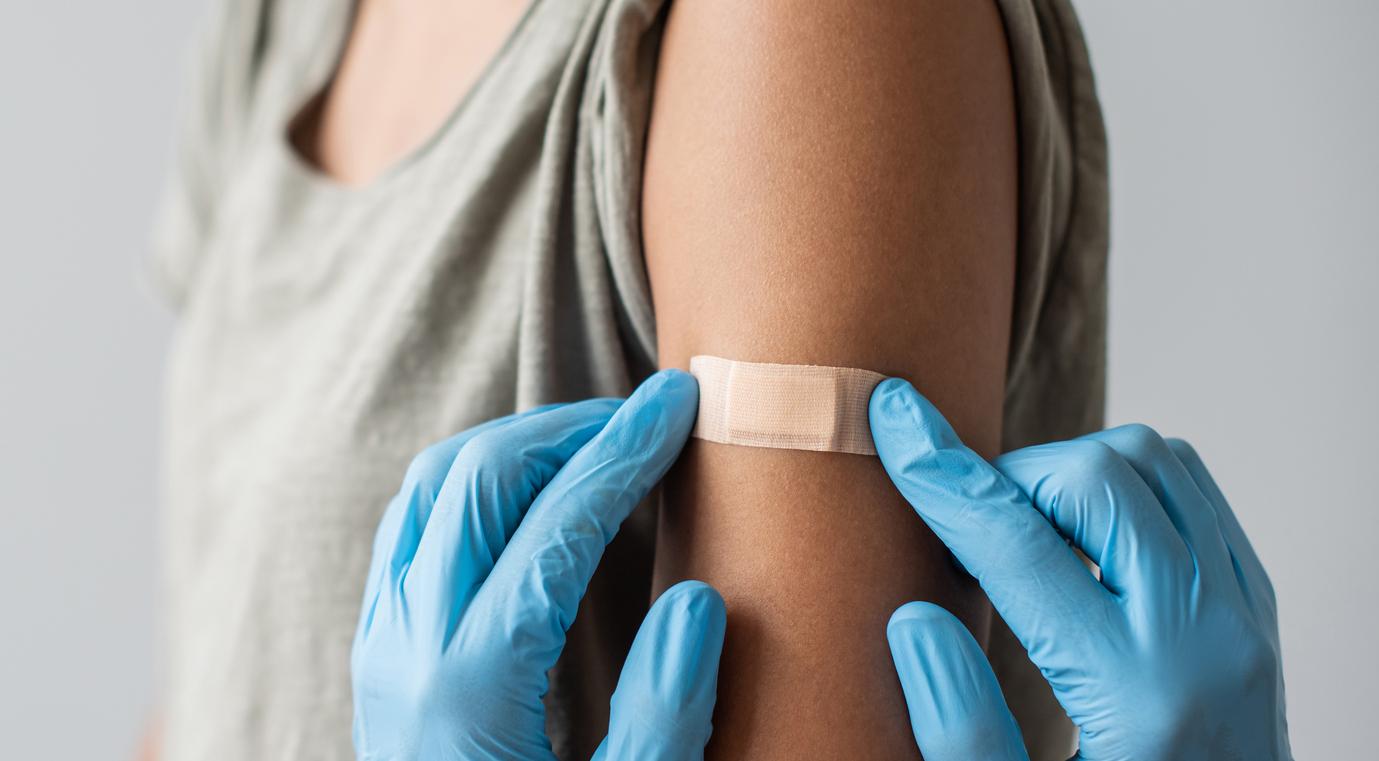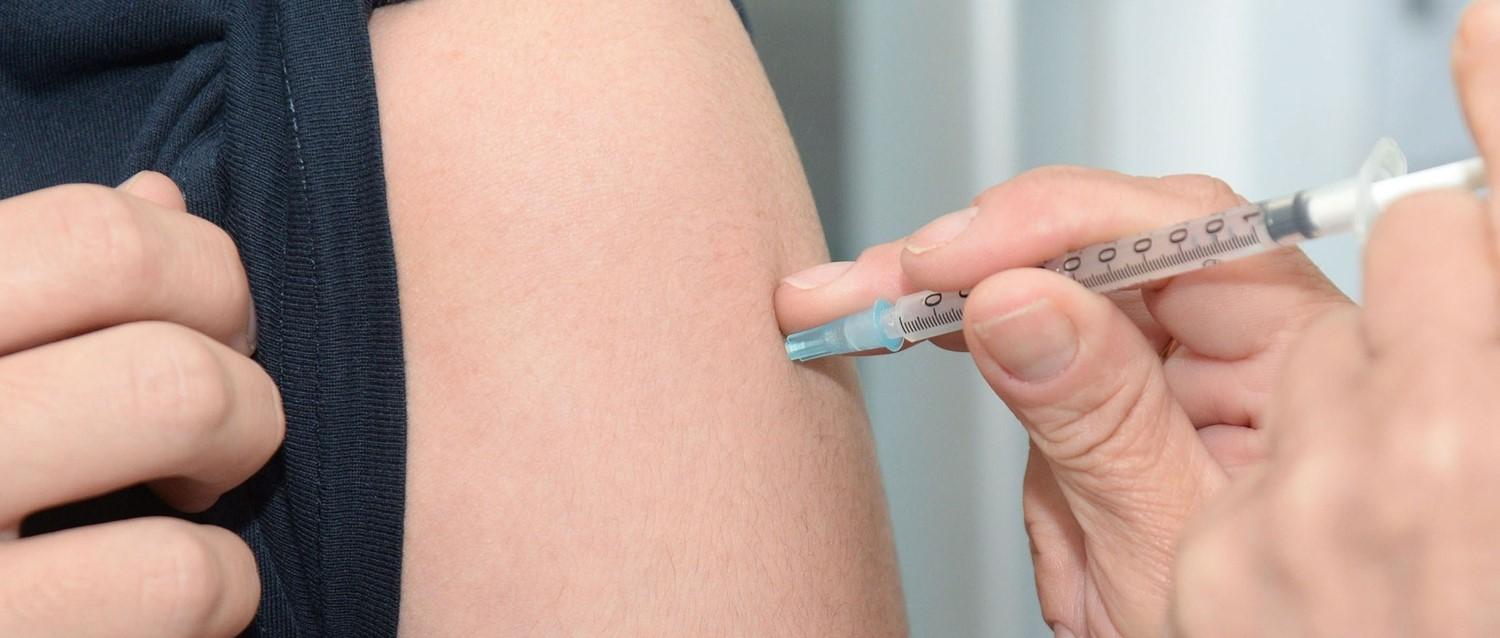
Where to get your flu jab this year
Peer reviewed by Dr Sarah Jarvis MBE, FRCGPLast updated by Andrea DowneyLast updated 11 Oct 2021
Meets Patient’s editorial guidelines
- DownloadDownload
- Share
- Language
- Discussion
It's that time of year again - winter will soon be upon us and that means it's time to get your flu jab. This year it's especially important to get your flu jab because it's our best defence against the winter virus spreading and putting extra pressure on the NHS while COVID-19 is still circulating.
In this article:
Scientists are very concerned that this year could leave us faced with a particularly bad flu season. Given that flu kills about 11,000 people in an average flu season in England (and hospitalises 40,000-50,000), higher than average cases could be a disaster for an already stretched NHS.
But you may have heard there were some shortages of flu jabs affecting GPs - so where can you get your flu jab and who is eligible for free ones? Dr Deborah Lee, Dr Fox Online Pharmacy, explains where you can get your vaccine.
"Virologists predict that this winter we are likely to see an increase in levels of influenza [flu] circulating in the population," Dr Lee explains.
"This is the first winter that the two viruses will have a real opportunity to circulate together. In addition, if you get infected with both, this significantly increases your chance of severe COVID infection."
In fact, the prediction is that this flu season could be 50% worse than normal, which will put a huge pressure on the NHS.
"Fewer people will have developed immunity to flu over the past 18 months, as people stayed at home, wore face masks, washed their hands and practised social distancing," Dr Lee adds.
"Last year (2020) not one case of influenza was reported by Public Health England. This means we are all relatively unused to producing antibodies to the flu.
"In a recent BMJ study, those who were infected with both flu and COVID were twice as likely to die, as those who were only infected with COVID."
The World Health Organization (WHO) states the flu vaccination is the most effective way to prevent the disease.
Continue reading below
Location, location, location
Everyone can benefit from having the flu jab, even if you're fit, healthy and young. Having your flu jab is the best way to prevent the spread of the virus and protect those who are more likely to become seriously unwell.
There are several places you can get your flu jab. They are:
Your GP surgery.
Pharmacies that are offering flu vaccinations.
Midwifery services if you're pregnant.
At hospital if you're having an appointment for something else.
GP surgeries are currently overwhelmed with patients, so you cannot turn up to your practice and hope to be seen. Instead, if you're eligible you should be contacted by your practice with details of their arrangements. Because of social distancing measures, few practices are offering the drop-in clinics of the past - unless informed otherwise, you will need to call ahead and book an appointment.
If your appointment is cancelled or postponed due to shortages of the flu vaccine - thought to be caused by road freight problems - your GP will call you to confirm a new date for your jab.
If your practice is having problems with supply, you can try booking an appointment with your local pharmacy instead. The appointments can usually be made online, but if you prefer you can call your pharmacy to set one up.
Forget about the price tag
For some people the flu jab is completely free. In fact, this year the government extended the free flu vaccination programme to more people in a bid to better protect us from the virus.
Those eligible include:
Children aged 2 and 3 years on 31 August 2021.
Primary school children.
Secondary school children in years 7-11.
Anyone who will be 50 or over on 31 March 2022.
Pregnant women.
Vulnerable groups.
People who live with someone whose immune system is severely compromised.
Main carers of an older or disabled person who may be at risk if their carer gets sick.
By now you're probably familiar with many of the people who fall under the category of 'vulnerable groups' but in case you're not, vulnerable groups includes everyone who has an underlying condition that could make flu particularly dangerous to them.
This includes people with respiratory conditions like asthma, cystic fibrosis or lung cancer; diabetes; heart disease; chronic kidney disease; chronic liver disease; neurological conditions like Parkinson's disease or multiple sclerosis; and anyone with a weakened immune system. To check if you're eligible, use the two-minute Patient Access flu eligibility checker.
Frontline health and care staff, including those employed in care homes and hospices, are also to be offered the jab for free.
The government has indicated in its national flu immunisation programme for 2021 to 2022 that all frontline health and social care workers are expected to have the flu vaccine, in order to protect those they are caring for.
Continue reading below
Back to school
2-year-olds and 3-year-olds will be offered vaccination via their GP surgery. School-aged children (up to year 11) will be vaccinated at school, so you won't need to worry about booking an appointment for them. Most will have the nasal spray vaccine, Dr Lee says.
"Flu can be a serious, life-threatening infection. Viral transmission is rife in school-aged children," she adds.
"Vaccinating children is a very effective way of helping reduce the transmission of the flu virus in the community. The vaccine also prevents children from developing influenza and helps keep them safe and well.
"It helps stop teachers from catching the flu and reduces the number of days they would otherwise need to take off sick."
The rest of us
The aim of the NHS vaccination programme is to protect those who are most likely to end up in hospital with flu. However, flu can knock out the healthiest person for a couple of weeks, and many people want to protect themselves with a vaccine even if they can't get one through the NHS.
If you don't fall into one of the eligible groups, you can still book a private flu vaccine quickly and easily with a local pharmacist.
Continue reading below
No-go zone
There are some people who medically cannot get the flu vaccine. That's why it's even more important that those who can, do - it's our biggest tool in creating herd immunity and stopping the spread of the virus.
People who have had a serious allergic reaction to the flu vaccine in the past are advised by the NHS not to get the vaccine.
Some flu vaccines aren't suitable for people with a serious allergy to eggs. That's because some flu vaccines are made using tiny traces of egg. However, you can speak to your GP about your options for a low-egg or egg-free vaccine if you're eligible for an NHS flu jab this winter.
Safety first
There's often a misconception that the flu vaccine can give you flu, but this is incorrect. Infections only happen if you're exposed to a live virus which can multiply in your body - and flu injections don't contain any live virus at all.
Because the vaccine is rolled out at the start of winter, it's common for people to come down with a cold shortly afterwards and blame the vaccine. In addition, flu vaccination can give you cold-like symptoms for a couple of days, because it has triggered an immune response in your body so when you do come into contact with the actual virus your body is prepared to fight it.
The most common side effects are:
Headache.
Sweating.
Aching joints and muscles.
Shivering.
Fatigue.
Feeling generally unwell.
"These side effects are more common in those aged 65 and older, who are usually given a specific vaccine - the adjuvanted trivalent vaccine (aTIV) - and can last 1-2 days," Dr Lee explains.
"The vaccine has to be given every year because the flu virus mutates, and the vaccination has to be modified to be effective against the predicted strains for this winter season."
The vaccine contains an inactivated [killed] version of the flu virus, which gives your body the ability to produce antibodies.
What this does is trigger an immune response in the body so you're able to produce antibodies to the virus before you've even got the flu. Antibodies are a protein produced by your plasma cells and carried in your blood to strengthen your immune response to bacteria and viruses - they're your body's natural defence mechanism.
That means if you do come into contact with the live virus, your body is already prepared to fight it off and you're unlikely to become ill.
To find out more about the flu jab, or to book a time to have your vaccine, speak with your local pharmacist.
Patient picks for Flu and vaccination

Infections
Will flu vaccinations be available after Brexit?
Leaving the EU without a deal on 31 October 'likely' to disrupt flu vaccine delivery just as UK faces virulent strain, doctors warn.
by Ashwin Bhandari

Infections
Can the flu jab really give you the flu?
Winter is coming and with it the dreaded flu virus. But many people put off having their flu jab for fear it gives them the flu, when in fact it's your best defence against the nasty illness. A GP and a pharmacist explain why.
by Andrea Downey
Continue reading below
Article history
The information on this page is peer reviewed by qualified clinicians.
11 Oct 2021 | Latest version

Ask, share, connect.
Browse discussions, ask questions, and share experiences across hundreds of health topics.

Feeling unwell?
Assess your symptoms online for free
Sign up to the Patient newsletter
Your weekly dose of clear, trustworthy health advice - written to help you feel informed, confident and in control.
By subscribing you accept our Privacy Policy. You can unsubscribe at any time. We never sell your data.